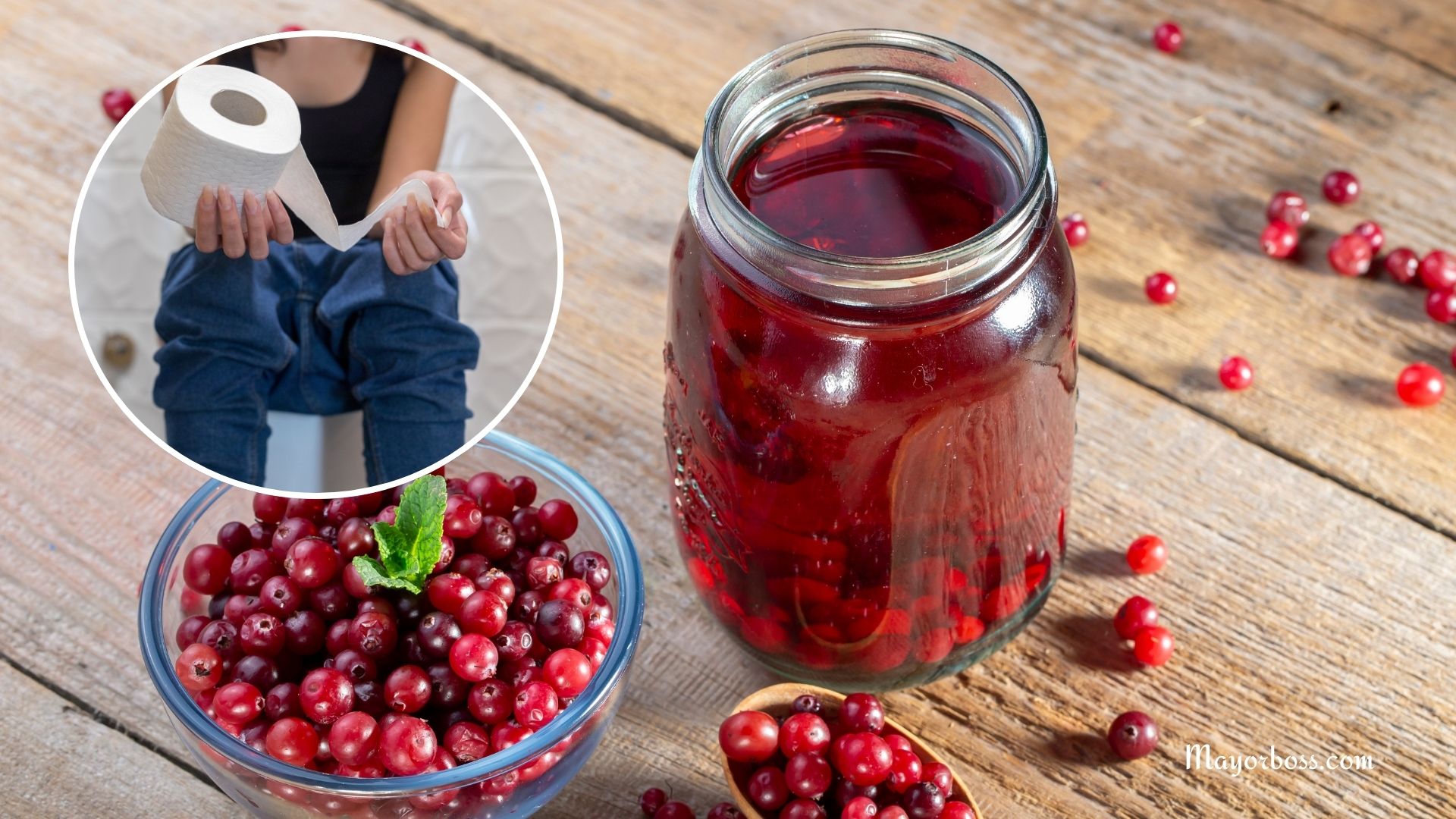What Drinking Cranberry Juice Every Day Does to Your Poop
Cranberry juice is best known for supporting urinary tract health. But drinking it daily may also change how your digestive system works—especially your bowel movements.

Cranberry Juice and Gut Health
Cranberries contain several plant compounds, including polyphenols, which have natural antibacterial and anti-inflammatory effects. Researchers from the Canadian Institute of Nutrition and Functional Foods (INAF) found that cranberry extracts can increase the amount of Bifidobacterium, a type of healthy bacteria, in the gut.
Your digestive system depends on a balance of healthy bacteria. Cranberry juice may help support that balance by reducing harmful bacteria. This is the same mechanism that helps prevent urinary tract infections. In your gut, it can reduce inflammation and improve digestive function over time.
It May Loosen Your Stools
One of the more surprising effects of drinking cranberry juice daily is its potential to loosen your stools. Some people notice their bowel movements become softer or more frequent.
Why does this happen? Cranberry juice has mild laxative effects for some individuals. This is especially true if you drink a large amount—more than one cup per day. It’s high in natural sugars and contains sorbitol, a sugar alcohol that can draw water into the intestines. That extra water softens the stool, making it easier to pass.
It Can Help Relieve Mild Constipation
If you struggle with occasional constipation, cranberry juice may help. Its natural compounds support regular bowel movements in several ways:
- The sorbitol acts like a natural stool softener.
- It increases fluid intake, which helps the colon process waste.
- It may reduce harmful gut bacteria that slow digestion.
However, cranberry juice should not replace fiber-rich foods or prescribed laxatives if you have chronic constipation. It can be part of a supportive strategy but not the sole solution.
Watch Out for Diarrhea
While some people may find relief from constipation, others may experience loose stools or diarrhea. This usually happens when someone drinks too much cranberry juice at once.
Cranberry juice contains fructose and other sugars that may not be fully absorbed in the gut. For sensitive individuals, especially those with irritable bowel syndrome (IBS), this can trigger bloating, cramping, or diarrhea.
To avoid these symptoms, it’s best to start with a small amount—around 4 to 8 ounces per day—and see how your body reacts.
It May Improve Gut Microbiome Balance
Cranberry juice might support the growth of beneficial gut bacteria. Research shows that certain polyphenols in cranberries can act as prebiotics. Prebiotics are substances that feed the good bacteria in your gut.
A healthier gut microbiome is linked to better digestion, more regular bowel movements, and reduced inflammation in the intestines. Over time, this balance can lead to more consistent poop patterns—neither too hard nor too loose.
Impact Depends on the Type of Juice
It’s important to note that not all cranberry juices are created equal. Many commercial brands are loaded with added sugars or blended with other juices, like apple or grape.
Choose 100% pure cranberry juice when possible. It contains the highest amount of active plant compounds. Even though it’s tart, it’s the version most likely to offer digestive health benefits.
If the taste is too strong, consider diluting it with water or adding a splash of lemon to reduce bitterness without sacrificing its natural benefits.
Hydration
Cranberry juice contributes to your daily fluid intake. Proper hydration is essential for soft, regular stools. If you’re not drinking enough water, your colon pulls water from your stool, making it hard and dry.
By including cranberry juice as part of your daily fluid intake, you may support better hydration and easier bowel movements—especially if you’re not drinking enough fluids otherwise.
The Bottom Line
Drinking cranberry juice every day can have an unexpected effect on your poop. For many people, it leads to softer, more regular stools. For others, it may cause loose stools or digestive upset if consumed in excess.
Start with small amounts and monitor how your body responds. Choose unsweetened, 100% cranberry juice for the most benefits. And remember, while cranberry juice can support digestive health, a balanced diet rich in fiber, fruits, and vegetables remains essential for healthy bowel function.
If you experience ongoing changes in your bowel habits or digestive discomfort, it’s important to talk with your doctor.
